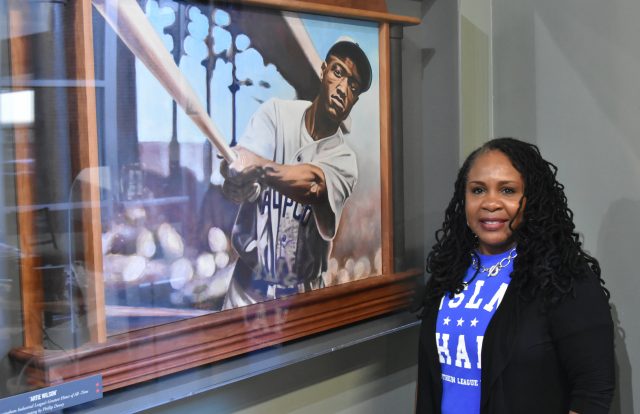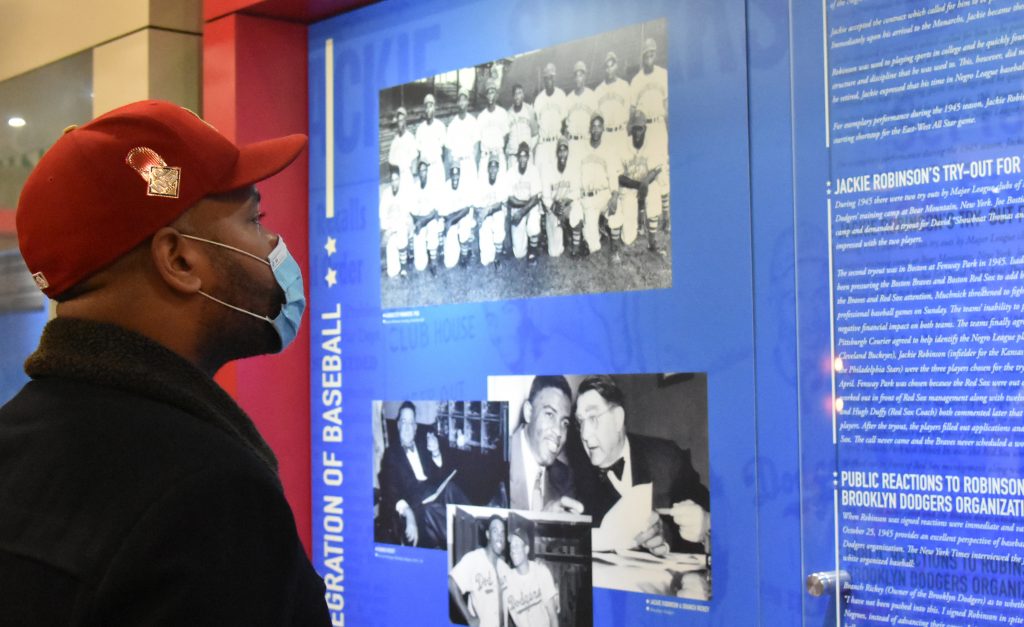
Solomon Crenshaw Jr.
For The Birmingham Times
James “Jake” Sanders’s voice was hoarse but that didn’t stop him from expressing his joy that Major League Baseball now views the Negro Leagues as major league.
“That’s the greatest thing that could have ever happened for the Negro League ballplayer because we have been left out of everything,” said the 86-year-old former outfielder whose Negro League career in the 1950s included stints with the Kansas City Monarchs, Raleigh Tigers, Birmingham Black Barons, New Orleans Bears and Detroit Stars. “That’s the best thing that could have ever happened.”
Major League Baseball announced in mid-December that it is reclassifying the Negro Leagues as a major league.
The news was welcomed far and wide by those connected with the Negro Leagues, for years the only place Black ballplayers could play professionally during segregation.
Artie Wilson Jr. awoke in his Hawaii home last Wednesday morning by congratulatory messages.
“I had just gotten up and I got a text from two friends,” recalled Wilson, the son of former Birmingham Black Baron Artie Wilson Sr. “’Congratulations, your father and those like him are now acknowledged.’ I didn’t know what it was all about and then I turn on and scrolled on my phone.”
That’s when Wilson understood.
MLB announced it was “correcting a longtime oversight in the game’s history” by elevating the Negro Leagues to major league status on the centennial of its founding.
The Negro Leagues consisted of seven leagues, and MLB will include records from those circuits between 1920-48. The Negro Leagues began to dissolve one year after Jackie Robinson became MLB’s first Black player with the Brooklyn Dodgers in 1947.
Those leagues were excluded in 1969 when the Special Committee on Baseball Records identified six official “major leagues” dating to 1876.
Faye Davis, the daughter of Negro League great Piper Davis, summed up her feelings in three words: “It’s about time.”
Sanders, a Fairfield native who now lives in Oxmoor Valley, said it is unclear what else may come of the designation by MLB.
“We don’t know yet,” he said. “But it’s a good thing. It’s a good thing.”
‘National Treasures’

Alicia Johnson Williams, director of the Negro Southern League Museum on Birmingham’s Southside, agreed that the designation is well overdue.
“Finally. It’s about time,” she said, becoming a bit emotional. “Unfortunately, so many of them are up in age and we’ve lost so many of them. They are national treasures. They’ve contributed greatly to the African American historical canon.
“For them to get to this point is wonderful. It’s an honor,” Johnson Williams continued. “But so many of them didn’t get an opportunity to experience the reward, an honor that is now upon them. That is sad for me, because I would have loved for them to have experienced the well-deserved experience that we’re now all witnessing right now in real time.”
Dr. Layton Revel, founder and executive director for the Center for Negro League Baseball Research (CNLBR), said he was elated when he heard the news.
“My initial thought was, it was a long time coming,” said Revel, who supplied virtually all of the artifacts that are displayed in the NSLM which is next door to Regions Field. “I applaud Major League Baseball for being able to go back and look at the history of the Negro Leagues and really give a fair treatment to what their role in professional baseball was in the United States.”
Individual Negro League ballplayers’ careers have been recognized by the National Baseball Hall of Fame in Cooperstown, Ohio including Satchel Page, Josh Gibson, Cool Papa Bell, Buck Leonard, Jud Wilson and many more.
“A lot of the great Negro League players have been recognized on a national basis but to have the teams as a whole, the league as a whole . . . that’s tremendously gratifying,” Revel said. “I know for the ballplayers themselves who played in the Negro Leagues during that time, and for their families, it’s an incredibly proud day.”
Combining League Stats
For several years, Revel has teamed with Birmingham Chef Clayton Sherrod to host a Negro League reunion for surviving ballplayers and their families. The pair, along with Cam Perron, have worked to track down former Negro League players to document their careers to get them pensions from Major League Baseball.
Perron wrote the book Comeback Season: My Unlikely Story of Friendship with the Greatest Living Negro League Baseball Players. He called the designation from Major League Baseball a “nice, symbolic gesture for them to finally call attention to the Negro Leagues.
“Reading deeper, I hope more comes from this, particularly in terms of pensions, doing something for living players a little bit more,” he said.
One aspect of the designation by Major League Baseball is that the statistics players built in their time in the Negro Leagues will be at least partly counted in the stats of MLB.
“It is MLB’s view that the Committee’s 1969 omission of the Negro Leagues from consideration was clearly an error that demands today’s designation,” the league said in a statement.
The league will work with the Elias Sports Bureau to review Negro Leagues statistics and records and figure out how to incorporate them into MLB’s history. There was no standard method of record keeping for the Negro Leagues, but there are enough box scores to stitch together some of its statistical past.
Melding Negro League stats into those of MLB is tricky, Perron said.
“You’re only taking a percentage of games because the Negro League was structured so much differently with exhibition games and barnstorming and winter ball and stuff,” he said. “I do think it’s a little complicated to try to compare small portions of statistics to major league statistics. At the end of the day . . . I’d hope a lot more comes out of it and this is just the beginning.”
For his part, Artie Wilson Jr. says the MLB designation merits greater historical attention for his father and other former Negro League players.
“We want history to reflect the truth,” he said. “Not that the greatest baseball player in the world was Babe Ruth and he was all everything. There was Josh Gibson. It was Cool Papa Bell. There was Artie Wilson. There was Satchel Page.
“There’s a whole lot of guys who played the game and played it ’cause they loved it and played really, really well,” Wilson continued.
“We need to have them in those history books when the kids grow up and they learn there was somebody who looked like them and did it (played baseball) at the highest level,” he said.




